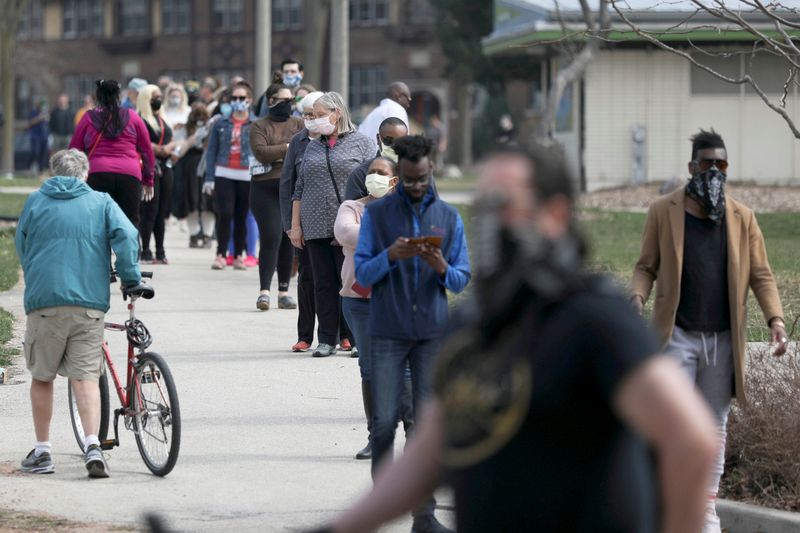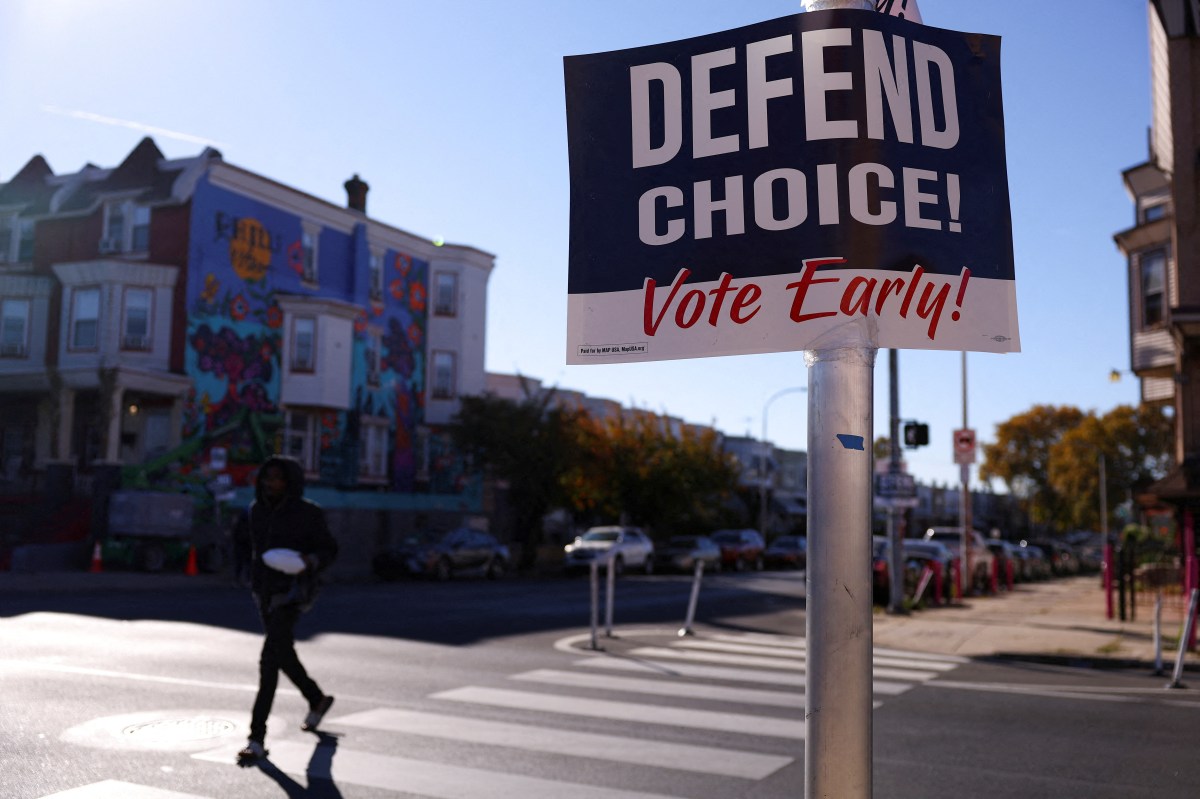(Reuters) – A U.S. appeals court on Thursday blocked an order that would have allowed Wisconsin election officials to count absentee ballots arriving after the Nov. 3 election, as mail-in voting surges because of the novel coronavirus pandemic.
The pandemic is fueling a wave of election-related litigation ahead of the contest between President Donald Trump and his Democratic challenger Joe Biden, with a separate ruling in Ohio on Thursday striking down a rule that restricted the number of drop boxes voters can use to return absentee ballots.
The case in Wisconsin has been closely watched because the state could be critical for Republican Trump’s hopes of winning reelection. Trump’s narrow victory in Wisconsin in 2016 helped win the presidency, and public opinion polls show a tight race there now.
In a 2-1 ruling, a panel of the 7th U.S. Circuit Court of Appeals blocked a federal judge’s earlier ruling which would have allowed officials to count absentee ballots that arrive up to six days after the election.
The decision to put the changes on hold until the case is fully resolved likely means that ballots arriving after Nov. 3 will be disqualified. The appellate ruling also blocked a week-long extension of the state’s online and mail-in registration deadline.
The panel agreed with Wisconsin Republican legislative leaders that it was too close to Election Day to make significant changes and that alterations were better left to elected officials, rather than the judiciary.
Ahead of Wisconsin’s April presidential nomination contest during a surge of coronavirus cases, a series of court rulings tweaked rules for absentee ballots up until the day before polls opened.
“If the judge had issued an order in May based on April’s experience, it could not be called untimely,” the majority wrote. “By waiting until September, however, the district court acted too close to the election.”
Trump has repeatedly asserted without evidence that mail-in voting, a common feature of U.S. elections, will lead to massive voter fraud. Elections experts say voter fraud is exceedingly rare.
In a scathing dissent, Circuit Judge Ilana Rovner called the decision a “travesty” and warned that “thousands” of Wisconsinites would lose their right to vote.
In Ohio, where the presidential contest is also seen as close, U.S. District Judge Dan Polster in Cleveland struck down a rule by Ohio Secretary of State Frank LaRose, a Republican, that banned county officials from setting up more than one drop box per county for the return of absentee ballots.
Drop boxes have become a partisan flashpoint. Trump’s campaign and his Republican allies have sought to limit drop boxes in many states, arguing without evidence that they could enable voting fraud.
Polster’s ruling was a victory for Democrats who have promoted drop boxes as a reasonable and reliable option for voters who do not want to risk voting in person during the COVID-19 pandemic and the possibility of U.S. Postal Service delivery problems.
Polster wrote in his ruling that LaRose had not “advanced any legitimate reason” for his order.
The judge also refused to issue a suspension of the ruling pending an appeal.
“As stated above, we are in the middle of the worst pandemic in a century coupled with reasonable concern over the ability of the U.S. Postal Service to handle what will undoubtedly be the largest number of absentee voters in Ohio’s history,” he wrote.
(Reporting by Joseph Ax and Jason Lange; Editing by Howard Goller/ Noeleen Walder and Grant McCool)

























